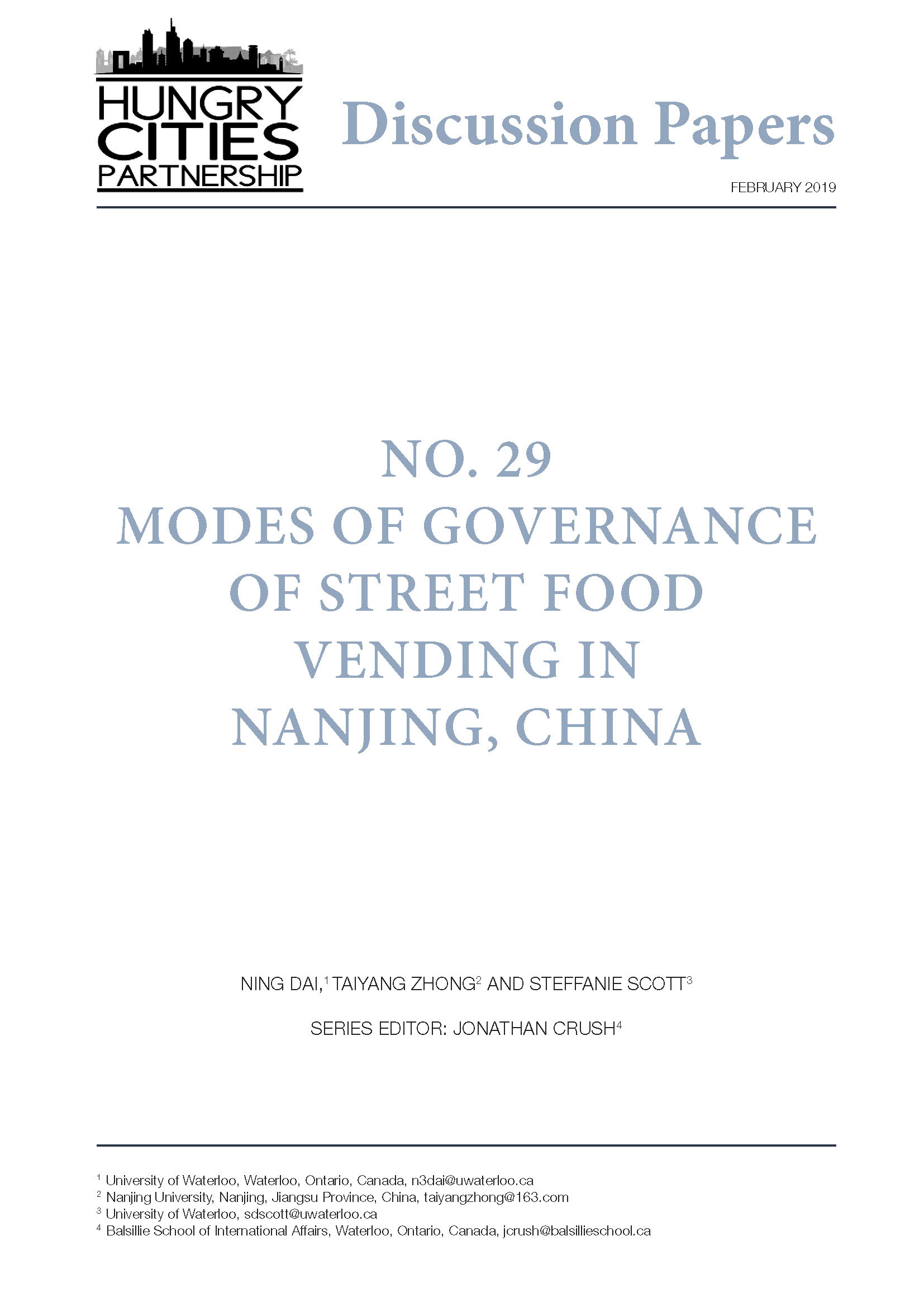In the Global South, the informal food economy is both a source of income for disadvantaged urban groups and an accessible source of food for consumers. Yet governance of this economy has commonly been restrictive in Southern countries including China. Consequently, in China there has been an antagonistic relationship between vendors and chengguan (China’s city management officers). This antagonism has been studied by researchers and reported by Chinese media. This discussion paper uses semi-structured interviews with street food vendors to evaluate how recent policy reforms have affected vendor-chengguan relations and vendor livelihoods in Nanjing. It identifies a non-confrontational relationship between some groups of vendors and chengguan. Practices of street food vending were tolerated by chengguan and the local government, despite restrictive top-down regulations. Existing studies have suggested the term ambiguous governance to describe this mode of governance. However, this paper argues that the term does not fully capture the complex dynamics in the covert cooperation between vendors and officers. One group of vendors comprised landless farmers who had lost their farmland to urbanization. The agreement between these vendors, chengguan, and local government was a means of compensating vendors for their lost land. Therefore, this governance mechanism is more accurately conceptualized as compensatory governance. Further studies of the compensatory governance of street food vendors in Chinese cities are needed to establish how widespread this model is and to inform policy-making.

